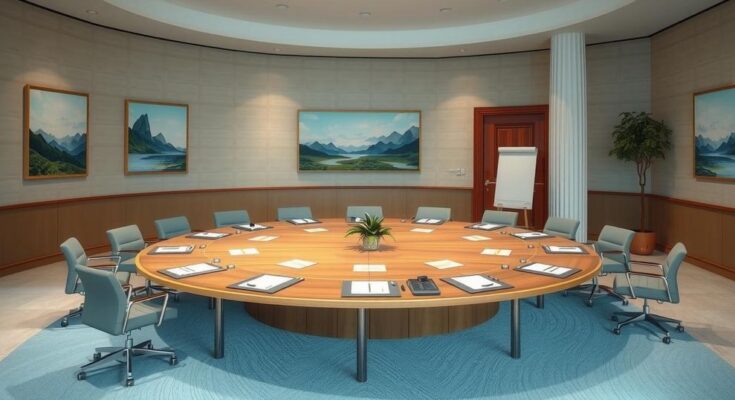Veteran diplomat Peter Fahrenholtz challenged EU’s Kaja Kallas over Rwanda’s alleged support for M23 rebels, emphasizing the need to address Congolese Tutsi grievances and the role of European mercenaries in the DRC crisis. Rwanda’s Foreign Minister denied allegations and criticized the blame directed at Rwanda, asserting that security concerns related to local militias should be prioritized.
A former German ambassador has brought attention to the EU’s stance regarding the ongoing crisis in the Democratic Republic of Congo (DRC). Peter Fahrenholtz, who served as ambassador to Rwanda from 2012 to 2016, confronted Kaja Kallas, the EU’s High Representative for Foreign Affairs, on her allegations against Rwanda concerning their support for the M23 rebel group. Kallas remarked, “M23/Rwanda must respect DRC territorial integrity, stop advances and withdraw from occupied territory,” implying that the M23 rebels are not comprised of Congolese citizens.
Fahrenholtz highlighted that the grievances of the M23 and the persecution faced by Congolese Tutsi have not been adequately acknowledged. He also raised critical questions regarding the role of European mercenaries in the DRC conflict, asking, “Are M23 not DRC citizens? Were there not European mercenaries fighting against them in DRC? Who will protect ethnic minorities in eastern DRC?” His remarks were shared on a social media platform.
The M23 group is affiliated with the Alliance Fleuve Congo, founded by Corneille Nangaa, former head of the DRC electoral commission. Their mission is to advocate for the protection of the Congolese Tutsi community, which has endured decades of persecution. During the conflict against the M23, around 2,000 Eastern European mercenaries were reportedly engaged alongside the Congolese military and its allies, which include Burundian forces and other local armed groups.
In a recent meeting with Rwanda’s Minister of Foreign Affairs, Olivier Nduhungirehe, Kallas faced vehement denial of Rwanda’s alleged support for the M23. Nduhungirehe stated that Rwanda’s apprehensions concerning collaboration between the Congolese army and the FDLR militia, which has historical ties to the 1994 genocide, have consistently been disregarded. He asserted that blaming Rwanda will not contribute to solving the DRC crisis, emphasizing that unbalanced interpretations of the situation will hinder progress toward resolution.
The discourse surrounding the DRC crisis highlights significant concerns regarding the involvement of European mercenaries and the implications of Rwanda’s alleged involvement in aiding M23 rebels. Both Peter Fahrenholtz and Olivier Nduhungirehe emphasize the importance of addressing the complex historical and social grievances of affected communities. Ultimately, a balanced approach and dialogue are necessary to resolve the ongoing conflict in eastern DRC.
Original Source: www.newtimes.co.rw




